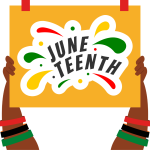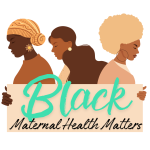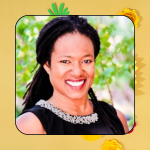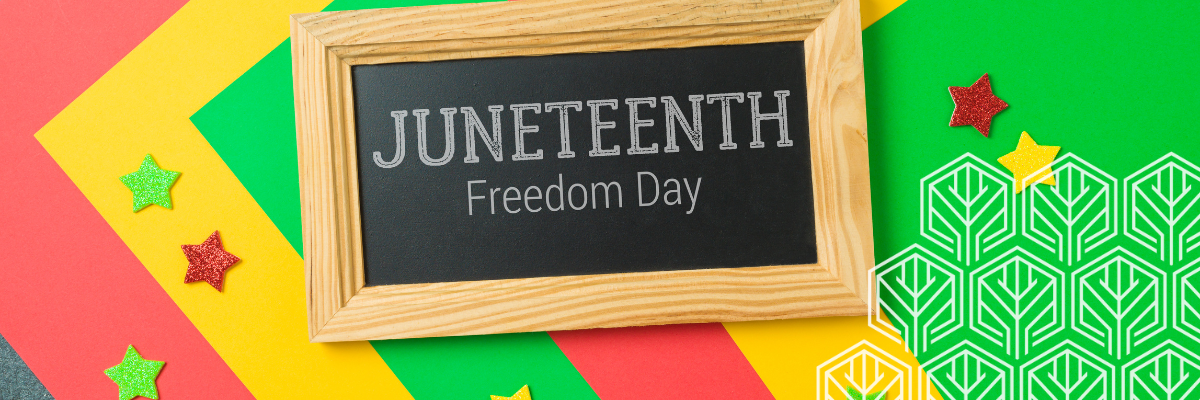[vc_row][vc_column][vc_column_text css=”.vc_custom_1717529438169{margin-bottom: 0px !important;}”]As a child, I loved the “Heritage Minutes” on CBC. These memorable 60-second spots about Canadian history stand out more in my mind today than most of what I learned in Canadian history classes. One of the most notable stories was the Heritage Minute about the Underground Railroad which chronicled the moment when an escaped, enslaved African American family realizes they have successfully made it to freedom in Canada. “We’s free! We’s in Canada” exclaimed the family as they embraced each other tearfully.
Like many Canadians, I was unaware of Juneteenth until a few years ago when President Biden proclaimed it a national holiday. June 19th is a significant date in US history because it is when the last group of enslaved people were emancipated approaching the end of the Civil War. As a nation with a strong tendency to congratulate itself for being the nation that American slaves escaped to, it can be difficult to see what this emancipatory celebration has to do with Canadian history or society.

In fact, slavery was a normalized way of life in the colonized territories that eventually became known as Canada for over 2 centuries. In the early days of the colonial process, Indigenous peoples were enslaved, along with Black people brought to the Americas by the trans-Atlantic slave trade. It ended in Canada in 1807 when slavery was abolished throughout the British Empire. In contrast, Juneteenth commemorates June 19, 1865, fifty-eight years later.
So why is it important to talk about slavery today, and why is it relevant to birthworkers? To enslave people, you must first dehumanize them. The transatlantic slave trade codified beliefs about Black people that can’t be eradicated as easily as laws. These beliefs are alive and well, and responsible for much of the suffering experienced by Black people globally today. For example, on May 25, we commemorated the 4th anniversary of the brutal murder of George Floyd at the hands of a police officer. This is despite the many years the Black Lives Matter movement has raised awareness of similar incidents.
This is relevant to birth workers because this dehumanization is enacted in the health care system as well. We shared an article about “The Mothers of Gynecology” in February. The dehumanization that these enslaved women experienced as they were experimented on without anesthesia is the direct ancestor of the horror stories described by prominent Black figures such as Beyonce, Serena Williams, and Tatyana Ali. Their stories represent the stories of countless others who don’t have the same kind of platform, including many Canadian Black women and birthers.
As health researchers and policy-makers in the US struggle to combat the Black maternal and neonatal mortality crisis, growing evidence emerges that culturally competent doulas have a significant positive impact on Black maternal health outcomes. This evidence has led to an ever-increasing number of US jurisdictions providing public funding for doula care to ensure that this support makes it to families that need it most.

These strides forward are connected to a broader trend in US culture of acknowledging its racist past and that racism is still a part of the fabric of its nationhood.
Frankly, my observation as a Black woman who has lived in Canada for over 40 years is that as a nation, we are still stuck in denialist whitewashing. For example, while I had long since debunked the mythology of the underground railroad heritage minute, I had no idea that Indigenous people had been enslaved in Canada until I started researching this article.
We know that reconciliation cannot exist without truth. The path to collecting the same level of data that has made publicly funded doula care possible in the US begins with acknowledging that racism is as baked into our history and as prevalent in today’s social fabric as it is in the US.
Canadians observing Juneteenth can use today to learn about the history of Black and Indigenous enslavement in Canada and reflect on how it impacts the modern day. I highly recommend looking at the work of Black Canadian scholar and historian Dr. Afua Cooper. In particular, her book “The Hanging of Angelique: The Untold Story of Canadian Slavery and the Burning of Old Montreal” is a great read. It chronicles the tragic tale of an enslaved Black woman in Lower Canada (now Quebec) who was scapegoated and tortured into confessing to the great fire of 1734 in Montreal. Cooper’s prodigious research captures the nightmare of Canadian slavery and the early colonial period. Drawn largely from copious trial records, Angelique’s words are considered the earliest known first-person account of slavery in the New World.

Keira Grant (she/her) Inclusion and Engagement Lead – Racialized Communities
Keira brings a wealth of experience to the Online Community Moderator role. She is a Queer, Black woman with a twenty-year track record in Equity, Diversity, and Inclusion (EDI) education, projects, and community building initiatives.[/vc_column_text][/vc_column][/vc_row]

Leave a Reply